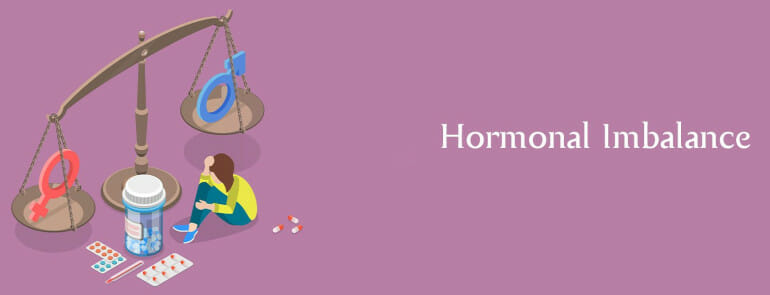Hey there! Ever wondered how those tiny little chemical messengers in our bodies, called hormones, can have such a huge impact on our overall well-being? They’re like the orchestra conductors of our bodily functions, controlling everything from our metabolism to our mood. But here’s the kicker – when these hormones go haywire, they can wreak havoc on our mental health too, leading to conditions like depression and anxiety. In this article, we’re diving deep into the fascinating link between hormonal imbalances and mental health. We’ll also explore how hormonal changes during different stages of life can shake things up, and of course, we’ll chat about the various treatment options available. So, if you’ve ever felt the weight of depression or anxiety, hold on tight because we’re about to unravel the intricate dance between our hormones and our minds. Let’s get started, shall we?

Let’s dive into an intriguing topic: Hormonal Imbalances and Depression. Depression, a mental health disorder, brings about persistent feelings of sadness and disinterest. Ever wondered about the role of hormonal imbalances in this condition? Well, buckle up! Research points to the involvement of cortisol, estrogen, and progesterone in the development of depression. These hormones can mess with your brain chemistry, resulting in decreased serotonin and dopamine levels – those vital mood regulators. Keep an eye out for symptoms ranging from changes in behavior (like loss of motivation or feeling hopeless) to physical signs (think weight gain or fatigue). Exciting stuff, right? Let’s explore this further!
Dealing with hormonal imbalances and anxiety can be a real challenge. Anxiety disorder is when you constantly worry or fear things, making it tough to go about your daily life. It turns out that hormonal imbalances can play a part in developing this disorder, especially when it comes to cortisol and adrenal hormones. These hormones can mess with your body’s stress response, leading to pesky anxiety symptoms like restless thoughts or a fast heartbeat. You may even experience physical symptoms like trouble breathing.

Our bodies are like intricate machines, and sometimes it feels impossible to keep everything in check. Studies have shown that this is particularly true for the levels of cortisol, estrogen, and progesterone swirling around inside us. When these levels skyrocket, they can throw off the delicate balance of serotonin and dopamine in our brains. And guess what? These two chemicals are the ones responsible for keeping our moods in check and making us feel happy. So when they’re out of whack, it’s no wonder we might start feeling down. It can be overwhelming to think about everything that can impact our mental well-being, but understanding how these chemicals all work together is a crucial step toward finding the balance we need.
Hormonal imbalances in women can be quite the rollercoaster ride. From puberty to pregnancy and postpartum to menopause, our bodies go through incredible changes. These fluctuations can impact our mental health, putting us at a higher risk of developing depression and anxiety disorders. That’s where hormone replacement therapy comes in. It’s a treatment option that can help manage those imbalances during menopause. But remember, always consult with a healthcare professional before starting any hormone therapy.
When it comes to dealing with mental health conditions caused by hormonal imbalances, there are several treatment options available. One popular choice is hormone replacement therapy (HRT), which can be beneficial for individuals experiencing menopausal or andropause symptoms. In addition to medical interventions, making lifestyle changes can have a significant impact on your overall well-being. Regular exercise, a balanced diet, and good sleep patterns can help improve your hormonal health and mental well-being.

It’s also essential to seek professional help when needed. Therapists and endocrinologists can provide valuable guidance and support tailored to your needs. Medication and hormone replacement therapy may be suitable options, but it’s crucial to consult with a healthcare provider before starting any treatment.
Ultimately, every individual’s journey toward optimal health and wellness is unique. By utilizing the right resources and receiving the necessary support, you can find the treatment plan that works best for you. Remember, you have the power to achieve optimal well-being and take control of your mental health.
Conclusion
Here’s the thing: hormonal imbalances can mess with our mental health. They can lead to all sorts of conditions like depression and anxiety disorder. It’s important to keep an eye on how hormonal changes affect us at different stages of life, especially for women. Puberty, pregnancy, postpartum, menopause – we go through a lot! So, if you’re dealing with these issues, there are things you can try. You can make lifestyle changes, seek professional help, take medication, or even consider hormone replacement therapy. But above all, remember to make mental health a priority and reach out for medical support when you need it. And hey, taking care of yourself with exercise, good eating, and a solid sleep routine can do wonders for your hormonal health and overall well-being. So, let’s tackle this one hormone at a time, shall we?

Now, it’s your turn to share your insights. Have you experienced the impact of hormonal imbalances on your mental health? What strategies have you found effective? We’re all in this together, and your experience could be the encouragement someone else needs. So, don’t be shy – drop your thoughts, stories, and advice in the comments section below. Let’s create a supportive community where we can navigate through these hormonal seas together. Remember, every shared experience adds a new beacon of light to someone else’s journey.

